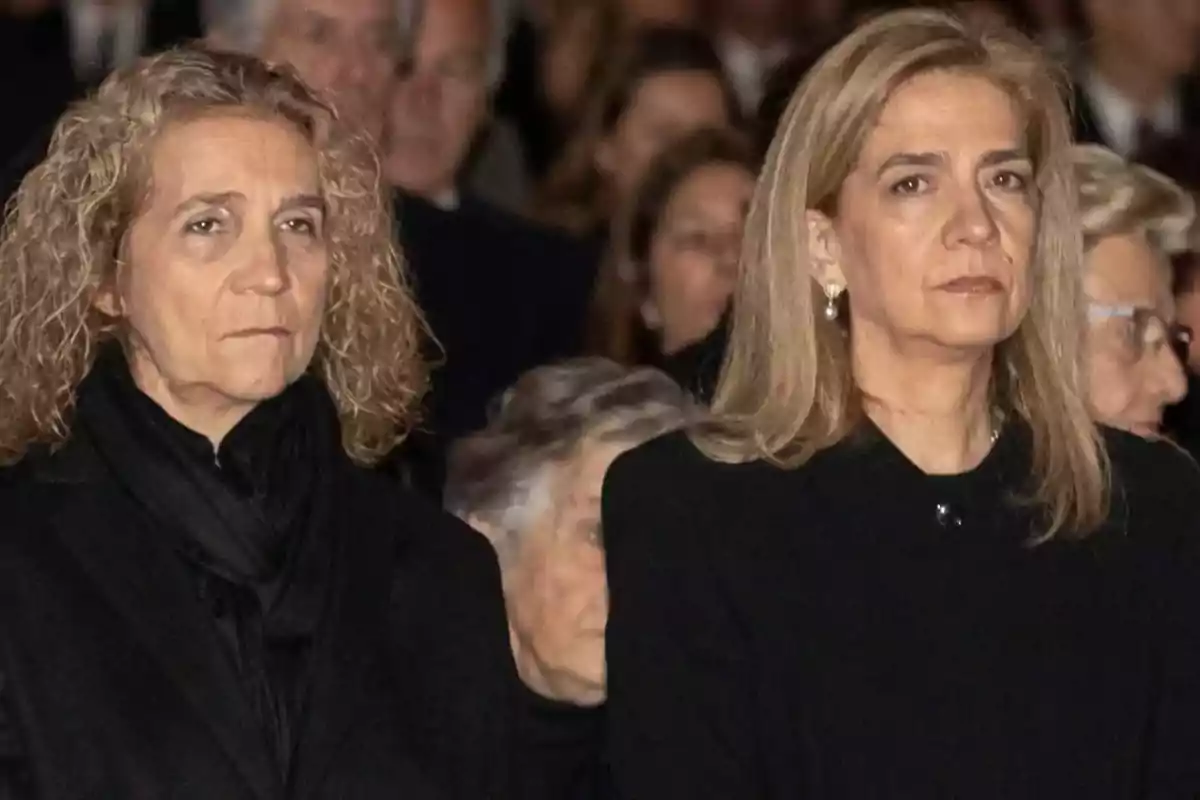The upcoming publication of Juan Carlos I's memoirs, titled Reconciliation, has reopened old family wounds. Although the title promises redemption, one statement strongly resonates: Pilar Eyre confirms what many have been whispering for years about the former king's relationship with his eldest daughter.
The story behind this revelation uncovers deep tensions, undeniable affection, and decisions that forged decades of silence in Zarzuela. The reader will feel that contrast between affection and harshness that has marked contemporary Bourbons.
The phrase that ended everything: "My eldest daughter is not fit to reign"
According to Pilar Eyre, it was Juan Carlos himself who advocated for an explicit clause during the drafting of the Constitution to ensure the Crown would pass to the male. That's why it was Felipe and not Elena. Eyre recalls an extreme phrase from the then-monarch: "My eldest daughter is not fit to reign," which suggested personal or medical disqualifications that were never publicly clarified.

This interpretation refocuses the story: it was not just a constitutional decision, but an act with intimate repercussions and lasting pain for the eldest infanta.
Why now?
The revelation coincides with the imminent release of Reconciliation. It is a work that will be published on November 12, 2025, and seeks to reclaim the legacy of the former king and "recover his story." Pilar Eyre gets ahead of the official narrative to give voice to internal versions. Her reference to that constitutional episode appears just as the book aims to close family chapters left open decades ago.
The paradox of affection and public loyalty
Despite those harsh words, Eyre's account emphasizes that the relationship between Juan Carlos and Elena has been stable and close in public. The infanta stood by her father after his departure to Abu Dhabi in 2020, distancing herself from Felipe VI, and consolidated an image of filial affection marked by loyalty. Eyre describes the bond as a mix of respect, affection, and tension that only the Bourbons know in their halls.

The context of the memoirs: paternal pride versus family distance
The memoirs do not hide feelings. According to Laurence Debray, the author who assisted the king in writing, Juan Carlos presents himself as "his biggest fan" regarding Felipe. In this sense, he expresses deep pride in his son's performance as king. It is a paradox: he publicly rejects Elena's legitimacy as heir, but declares total admiration for Felipe. That historical contradiction invites reflection on family loyalties and institutional duty.
Intimate echoes: childhood, pressure, and palace silences
The account recalls painful episodes from Elena's life, forced from birth by the pressure to fit into a role that was never hers. Pilar Eyre highlights moments such as a complicated adolescence, a marriage to Jaime de Marichalar marked by illness, a miscarriage, and the divorce in 2009. The infanta has learned to live in solitude, surrounded by close friends and the affection of her children, without emotional or institutional dependence.

